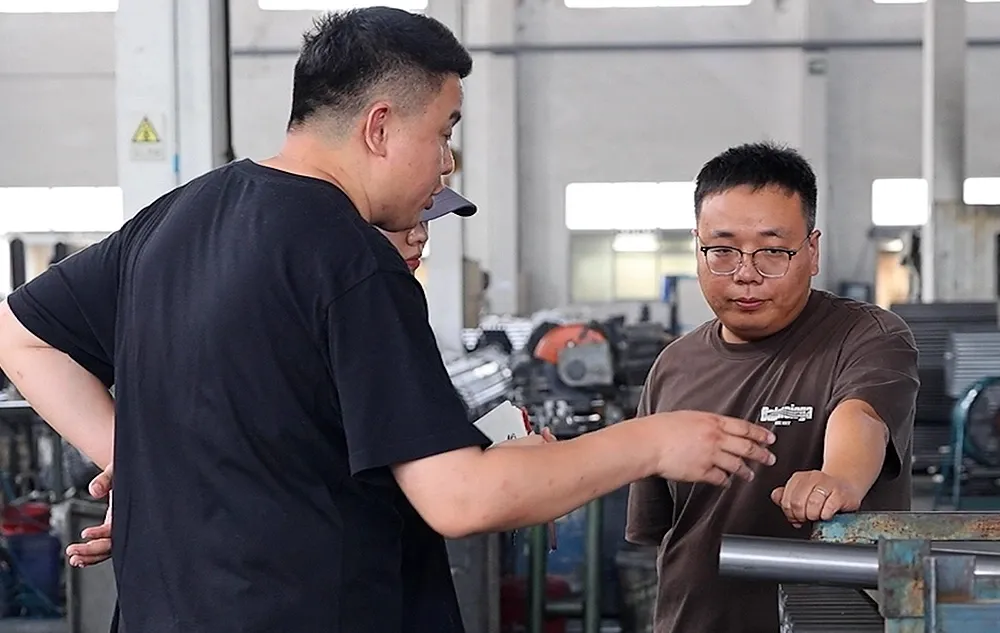
Precision Steel Tubes Essential Components in Modern Engineering
In today's rapidly developing industrial landscape, precision steel tubes have emerged as critical components in a wide array of applications. From automotive engineering to aerospace, and even in construction and manufacturing, the demand for high-quality steel tubes has significantly surged. But what exactly constitutes precision steel tubes, and why are they so important?
Definition and Manufacturing Process
Precision steel tubes are manufactured to meet stringent standards in terms of dimensions, tolerances, and surface finishes. Unlike standard steel tubes, which may have more considerable variances, precision tubes are produced using advanced technologies that ensure their quality and reliability. The manufacturing process often involves several key stages the selection of high-quality raw materials, careful shaping through processes like cold drawing or pilgering, and rigorous quality tests to confirm that they meet specific industry standards.
The manufacturing process starts with the selection of steel billets, which are then heated and drawn into tubes of precise diameter and wall thickness. Cold drawing, in particular, is a method that enhances the mechanical properties of the steel and allows for tighter tolerances. Following this, tubes are often subjected to various treatments such as heat treatment, surface finishing, and quality control inspections.
Applications
Precision steel tubes are utilized in numerous applications across various sectors. In the automotive industry, these tubes are often found in suspension systems, fuel lines, and structural components. The high precision and strength of these tubes contribute to the overall safety and performance of vehicles.
In aerospace engineering, where weight and performance are critical, precision steel tubes play an essential role in the fabrication of aircraft structures and components, ensuring they can withstand the extreme conditions of flight while maintaining structural integrity.
The construction industry also heavily relies on precision steel tubes. These tubes are used in scaffolding, structural frameworks, and various load-bearing applications, providing the necessary strength and durability to support buildings and infrastructure.

Advantages of Precision Steel Tubes
One of the primary advantages of precision steel tubes is their excellent mechanical properties. The methods used in their production ensure that they possess superior tensile strength, ductility, and resistance to various forms of wear and corrosion. This makes them particularly suitable for applications that involve heavy loads, harsh environments, or stringent safety requirements.
Additionally, the high degree of dimensional accuracy means that these tubes can seamlessly integrate into complex assemblies. This is particularly important in industries such as aerospace, where the slightest deviation can have significant implications.
Another advantage is the ability to customize precision steel tubes to meet specific application requirements. Manufacturers can tailor the dimensions, wall thickness, and surface finishes based on the unique needs of their clients, ensuring optimum performance for different applications.
Challenges in Production
Despite their numerous advantages, manufacturing precision steel tubes is not without its challenges. The need for high-quality raw materials and intricate manufacturing processes can drive up costs. Moreover, the rigorous quality control measures required can result in longer lead times, which may be a concern for industries operating under tight deadlines.
Furthermore, as technology advances, manufacturers must continually adapt to new methods and standards to remain competitive. This includes focusing on sustainability and finding ways to reduce waste and emissions during the manufacturing process.
Conclusion
Precision steel tubes are indispensable components in modern engineering, providing reliability, strength, and flexibility across various sectors. As industries continue to evolve and demand more complex and efficient solutions, the importance of these tubes will only grow. Investing in high-quality, precision-engineered steel tubes is essential for businesses aiming to maintain their competitive edge and ensure the safety and performance of their products. Whether in automotive, aerospace, or construction, precision steel tubes are the backbone that supports innovation and progress in our industrialized world.